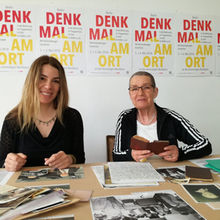Joy: Command or Choice?
- Ilana Lamstein

- Oct 19, 2023
- 2 min read
Updated: Aug 14, 2024

"You shall rejoice with all the goodness that the Lord your God has given to you..." – Deuteronomy 26:11
The Torah commands us to have an attitude of joy as a way of life, even in the face of difficult and traumatic circumstances that one may encounter. The ultimate reasons for events and the "existential trials" that people face are on a celestial level, beyond human understanding.
The ability to live with joy is, for many, a learned skill. Rabbi Zelig Pliskin suggests that joy is a quality that can be learned, even in the worst life situations. The Torah teaches and provides spiritual tools for living life to the fullest in the here and now, allowing individuals to see reality from a different perspective. It helps people understand that there is more to life than what the senses and rational thinking can explain.
Judaism believes that when there is faith in God – Emuná – the future and the uncertainty of what tomorrow may bring lose their significance. This pushes humans to live in the present moment. Emuná is a potential within every person and is therefore a capacity that can be developed. It depends on the individual's choice to exercise it and let it be expressed.
The morning prayer, "Modé Aní," connects us to the Creator and to the dimension of "temporality" on which human spiritual experience on Earth is based. We express gratitude to God for returning our soul to our body, giving us the blessing of life. People cannot foresee the "immediate instant" of the here and now, which emphasizes the importance of recognizing every moment of life as a miracle in itself.
On a deeper level, if humans knew the future in advance, how could they have free will? How would they be aware of their choices and take responsibility for their actions?
Viktor Frankl (1905 – 1997), a Jewish Viennese neurologist and psychiatrist, survived the Theresienstadt concentration camp and, through his tragic losses and experiences, developed Logotherapy, known as the third Viennese school of psychotherapy.
In his book "Man's Search for Meaning," he argues that the primary motivational force in a person is the search for meaning in life. He maintains that everything can be taken from a person except "the last of the human freedoms – to choose one's attitude in any given set of circumstances, to choose one's own way."
From a religious perspective, the Lubavitcher Rebbe, Menachem Mendel Schneerson of blessed memory, presents a similar view. He says that when a person recognizes their true purpose in life, obstacles become incentives, and one turns to their own choices. Pain and suffering reveal the inaccessible mystery of God, and the best response becomes action.
Viktor Frankl quotes Nietzsche: "He who has a why to live can bear almost any how."
The instinct for life enables a person to remain connected to it and to question why "their time" in this world is this way and not another. Trust in God is, for many, the spiritual sustenance without which one could not navigate the most heart-wrenching and inexplicable events of misery and darkness.
Published for: Portal Jai









